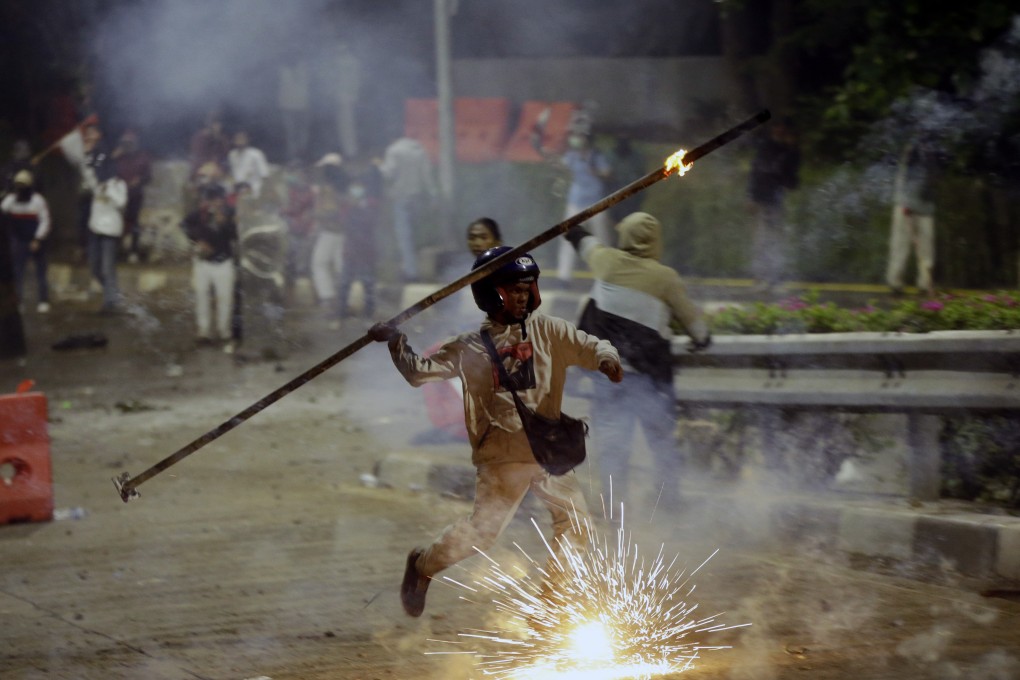Advertisement
Opinion | Mass protests in Hong Kong and Indonesia point to similar problems facing Carrie Lam and Joko Widodo
- In the face of protests, the leaders of Hong Kong and Indonesia have to maintain a precarious balance. Carrie Lam is caught between ‘one country’ and ‘two systems’, while Widodo needs to keep the secular right, religious right and liberal left onside
Reading Time:4 minutes
Why you can trust SCMP

Like Hong Kong, Indonesia has recently witnessed the largest street protests in decades. There are telling similarities between the two outbursts.
Advertisement
Although Hong Kong residents are largely protesting against the intrusion of authoritarian Chinese politics into their territory, which was given visible form in the move to amend the extradition bill, an underlying cause of the protests is the prohibitive housing costs resulting from private property developers’ rapacious hold over the market.
In Indonesia, students demonstrated late last month against laws that were seen as a sign of President Joko Widodo’s retreat from the commitment to economic and political reform that had secured him a second term in office earlier this year.
The demonstrators focused on a law that would weaken the country’s anti-graft agency and on plans to revise the criminal code that would introduce severe penalties for offences such as insulting the president and indulging in extramarital sex. In the economic sphere, the protest agenda was galvanised by popular opposition to a move to give business interests more power over Indonesia's land, mining and other resources.
Much as Hong Kong is witnessing its greatest challenge to Chinese rule since the handover, Indonesia’s demonstrations were the largest since a Bastille-style storming of Parliament in 1998 ended the gilded 32-year autocracy of president Suharto.
There is an ironic difference between the two uprisings. Hong Kong’s protesters are acting against the steady erosion of the freedoms the territory had enjoyed under British rule.

Advertisement
